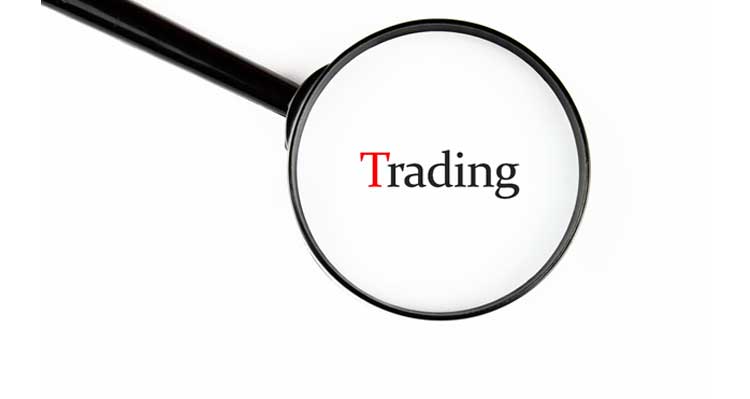 Ethereum futures, often referred to as ETHR futures, have become an essential instrument in the cryptocurrency derivatives market, allowing traders to speculate on the future price of Ethereum without the need to own the actual digital currency. These financial contracts obligate the buyer to purchase, and the seller to sell, Ethereum at a predetermined future date and price, providing a critical tool for risk management and speculative strategies in the volatile world of cryptocurrency.
Ethereum futures, often referred to as ETHR futures, have become an essential instrument in the cryptocurrency derivatives market, allowing traders to speculate on the future price of Ethereum without the need to own the actual digital currency. These financial contracts obligate the buyer to purchase, and the seller to sell, Ethereum at a predetermined future date and price, providing a critical tool for risk management and speculative strategies in the volatile world of cryptocurrency.

Contract Sizes and Exchange Traded
Ethereum futures contracts are standardized in terms of contract sizes, which typically represent a specific number of Ethereum tokens. For instance, one of the common contract sizes for Ethereum futures is 50 ETH per contract, although this can vary depending on the exchange. These futures are traded on various platforms, with some of the most prominent being the Chicago Mercantile Exchange (CME) and crypto-focused derivatives exchanges such as Deribit and BitMEX. The choice of exchange is crucial, as it determines not only the contract sizes but also the regulatory environment, liquidity, and the specific terms of the futures contracts.
Trading Hours
Ethereum futures are traded almost 24/7, reflecting the around-the-clock nature of the cryptocurrency market. This near-constant trading window is a significant departure from traditional financial markets, which have set trading hours. The ability to trade at almost any time provides flexibility for traders across different time zones and allows for immediate response to market-moving news and events, which are frequent in the crypto space.
Why Trade Ethereum Futures as Opposed to Actual Coin
Trading Ethereum futures instead of owning the actual cryptocurrency offers several advantages, particularly for speculative traders and institutional investors:
- Leverage: Futures contracts allow traders to leverage their positions, providing the potential for amplified returns. However, it’s important to note that while leverage can increase profits, it also magnifies losses.
- Short Selling: Unlike spot markets, where short selling can be complicated and expensive, futures markets make it straightforward to bet against Ethereum if a trader expects its price to fall, providing more strategies for traders.
- Risk Management: Futures can be used to hedge against price volatility in Ethereum holdings. For example, an investor holding Ethereum can sell futures contracts to lock in a future sell price, protecting against downside risk.
- No Need to Handle Cryptocurrency Directly: Trading futures eliminates the need to deal with wallets and the security risks associated with storing cryptocurrencies. This aspect is particularly appealing to institutional investors concerned with custody issues.
- Regulatory Environment: Futures traded on regulated exchanges like the CME are subject to strict regulatory oversight, providing a level of security and trustworthiness that the spot cryptocurrency market cannot always guarantee.
Projected Prediction on the Direction of the Futures
As of March 25th, 2024, Ethereum futures are traded at $36,415.00, reflecting the market’s expectations for the future price of Ethereum. Predicting the direction of Ethereum futures involves considering various factors, including the overall sentiment in the cryptocurrency market, technological advancements within the Ethereum network, regulatory changes, and macroeconomic trends that influence risk assets broadly.
Market Sentiment and Technological Advancements
The sentiment in the cryptocurrency market is significantly influenced by broader investor appetite for risk, which can be affected by global economic indicators, monetary policy changes, and geopolitical tensions. Additionally, Ethereum’s transition to Proof of Stake (PoS) with its Ethereum 2.0 upgrade has been a critical development, potentially leading to increased demand for ETH due to staking rewards, reduced energy consumption, and improved network scalability.
Regulatory Environment
Regulatory developments are a double-edged sword; while clear and supportive regulation can boost investor confidence and increase institutional participation, overly restrictive policies could hinder the growth of Ethereum and negatively impact futures prices.
Macroeconomic Factors
Macroeconomic factors, such as inflation rates, interest rates, and the performance of major economies, also play a crucial role. For instance, in environments where investors seek alternatives to traditional financial systems or protection against currency devaluation, cryptocurrencies like Ethereum may see increased demand, potentially driving up futures prices.
Given these considerations and the current trading price of $36,415.00, the short-to-medium term direction of Ethereum futures will likely be influenced by the broader economic recovery from global challenges, the pace of technological advancements within the Ethereum ecosystem, and the evolving regulatory landscape. Assuming positive progress in these areas, we might anticipate a bullish trend for Ethereum futures. However, traders should remain vigilant about the inherent volatility and risks in the cryptocurrency market, which could lead to significant price swings.
Ethereum futures offer traders and investors a sophisticated tool to speculate on or hedge against the price movements of one of the leading cryptocurrencies. By providing leverage, short-selling capabilities, risk management opportunities, and regulatory oversight, Ethereum futures represent a critical component of the modern crypto financial ecosystem. As with any investment, a well-considered strategy and ongoing market analysis are essential to navigate the complexities and capitalize on the opportunities presented by Ethereum futures.
Ready to start trading futures? Call US 1(800)454-9572 – Int’l (310)859-9572 email info@cannontrading.com and speak to one of our experienced, Series-3 licensed futures brokers and start your futures trading journey with E-Futures.com today.
Disclaimer – Trading Futures, Options on Futures, and retail off-exchange foreign currency transactions involves substantial risk of loss and is not suitable for all investors. Past performance is not indicative of future results. You should carefully consider whether trading is suitable for you in light of your circumstances, knowledge, and financial resources. You may lose all or more of your initial investment. Opinions, market data, and recommendations are subject to change at any time.
**This article has been generated with the help of AI Technology. It has been modified from the original draft for accuracy and compliance.
***@cannontrading on all socials.







